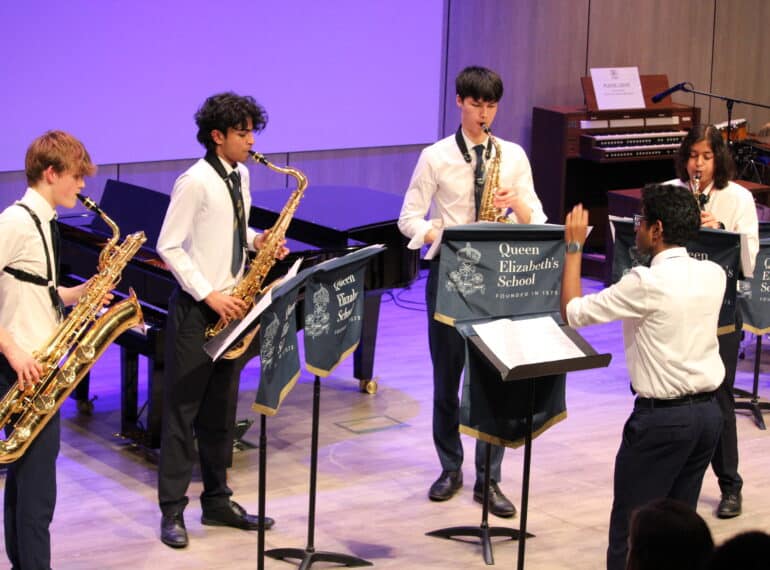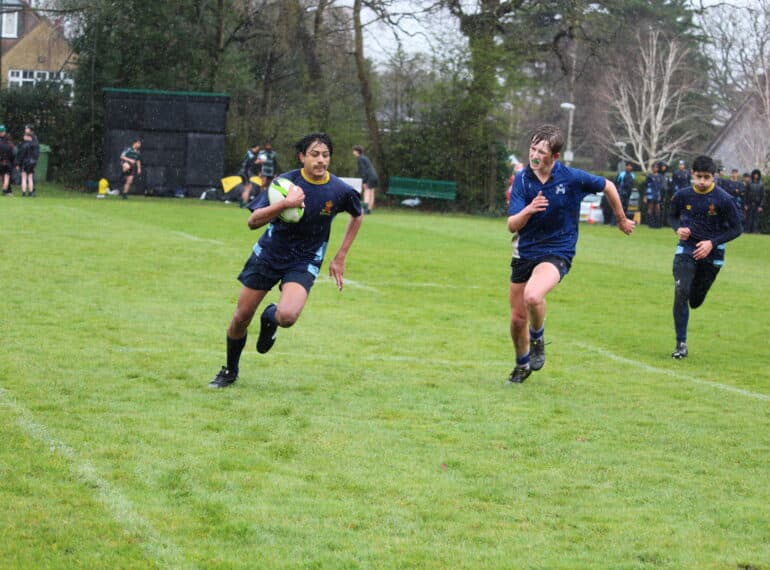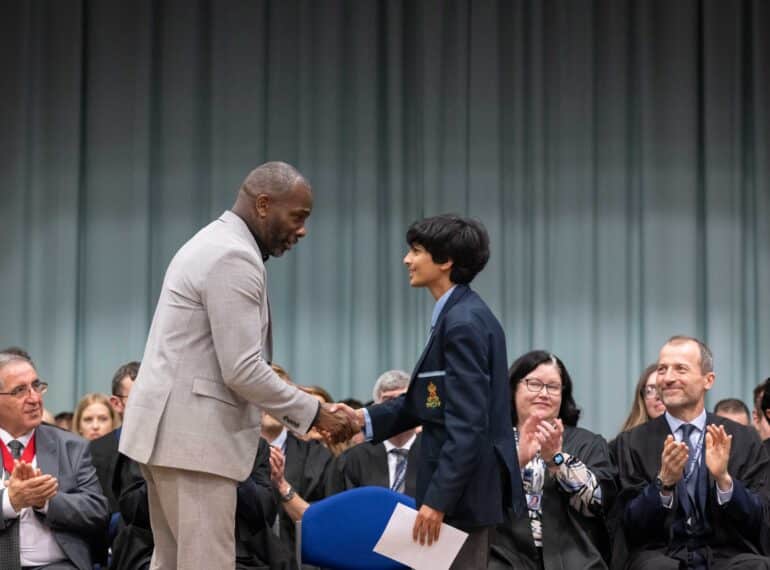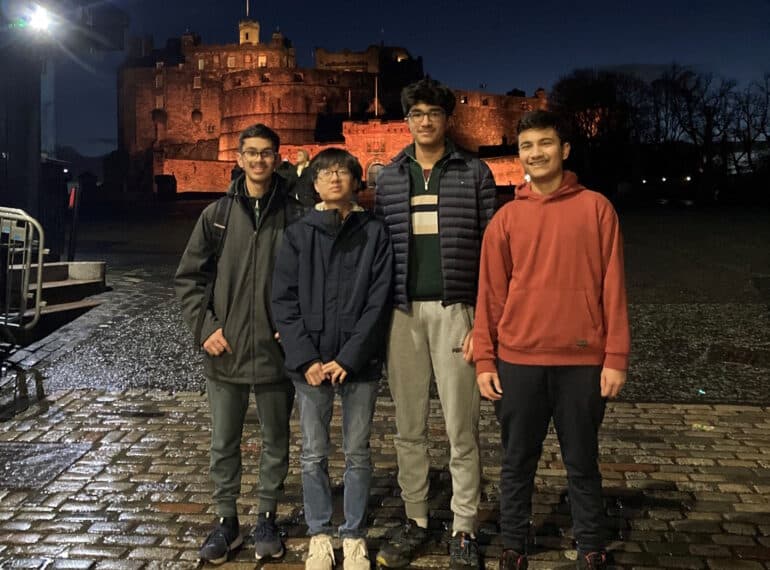
Four QE scientists headed to Scotland for the national final of a Royal Society of Chemistry competition.
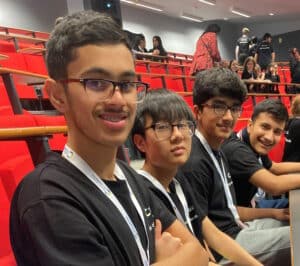 After successfully battling through the regional heats of the long-running Top of the Bench competition, the team took on competitors from around the country at Edinburgh Napier University.
After successfully battling through the regional heats of the long-running Top of the Bench competition, the team took on competitors from around the country at Edinburgh Napier University.
The weekend included not only the competition rounds themselves – a written test and a laboratory-based practical – but also a lecture, a prizegiving ceremony and an address from the RSC President, Professor Gill Reid.
QE’s Head of Chemistry Amy Irvine said: “Our students worked brilliantly together as a team and impressed with their fantastic chemistry knowledge and skills.
“It was a closely fought competition with little to separate the teams, and although they were not named among the eventual winners, getting to the final was itself a huge achievement.
“Moreover, they had a great time sampling university life in the labs and lecture theatres.”
The team comprised Year 11’s Zayn Phoplankar; Vu-lam Le-Nguyen, of Year 10; and Aarush Choudhary and Rishan Virmani, both of Year 9.
They reached the national final after scoring 66 points out of a maximum possible 72 in the Chilterns and Middlesex round of the competition during the autumn.
The four travelled by train to the national final. After the four-and-a-half journey from King’s Cross to the Scottish capital on the East Coast Main Line, they spent Friday evening exploring and relaxing prior to the start of the competition the next day.
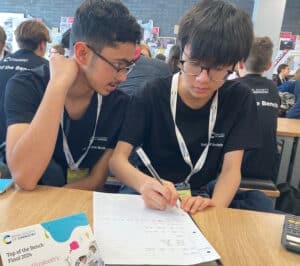 “They were excited to see the beautiful Edinburgh old town,” said Dr Irvine. “They then headed back to the hotel, just off the Royal Mile, after a much-needed Nando’s!”
“They were excited to see the beautiful Edinburgh old town,” said Dr Irvine. “They then headed back to the hotel, just off the Royal Mile, after a much-needed Nando’s!”
Water was the theme of this year’s Top of the Bench – a competition open to all UK secondary schools that has been running for more than 20 years.
On the Saturday morning, the students completed a written paper with questions that covered areas ranging from separating techniques to neutralisation.
The afternoon brought a team practical assessment. “They had a chance to show their separating technique and have a go at a redox titration – normally an A-level topic!” Dr Irvine added.
The keynote lecture on Chemical engineering to produce clean drinking water came before the competitors heard from Professor Reid.

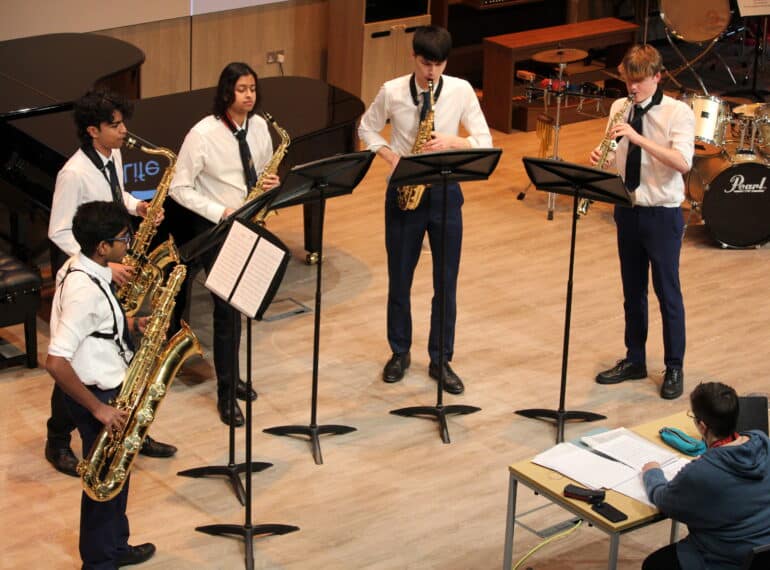
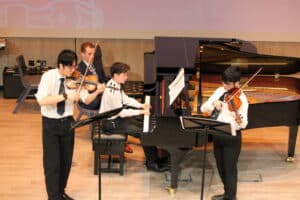 The two groups – both in the U19 category – had been among no fewer than 12 QE ensembles to have reached the semi-finals of the 2024 Pro Corda Festival.
The two groups – both in the U19 category – had been among no fewer than 12 QE ensembles to have reached the semi-finals of the 2024 Pro Corda Festival.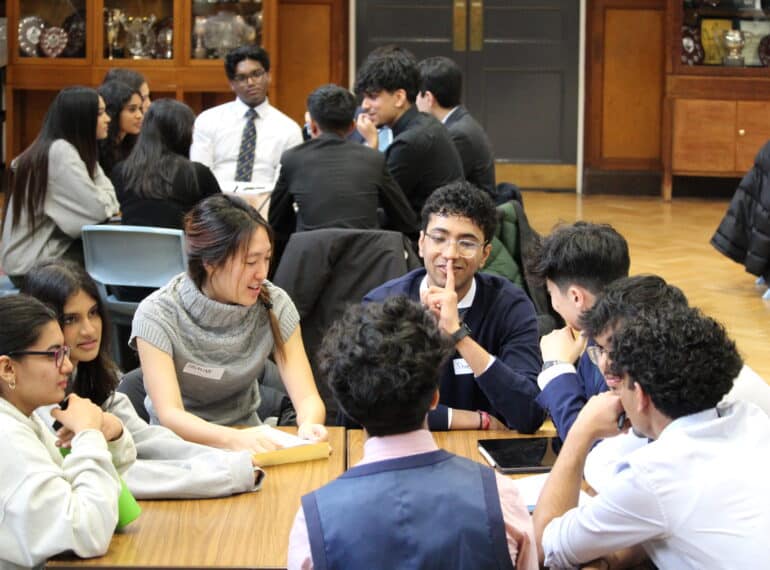
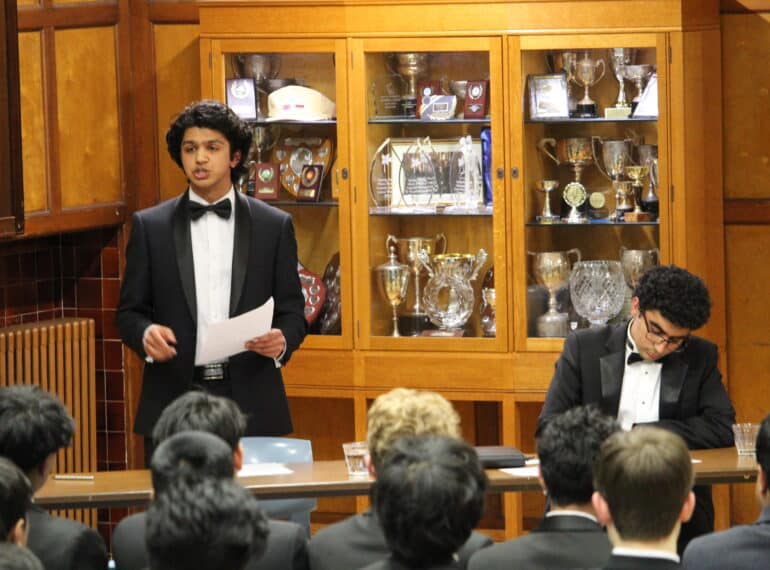
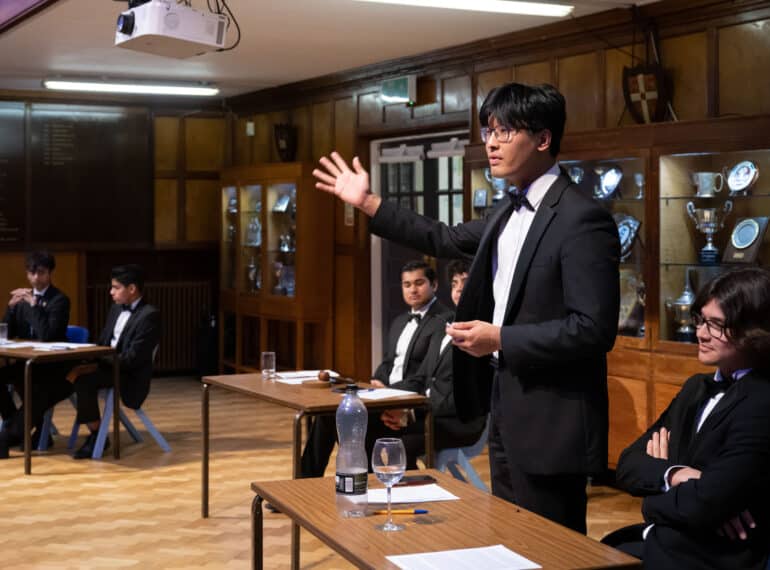
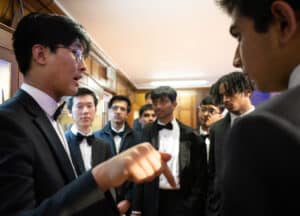 After taking full advantage of opportunities to get involved in debating and public-speaking while at the School, Mipham secured a place to read Philosophy, Politics and Economics at Oxford.
After taking full advantage of opportunities to get involved in debating and public-speaking while at the School, Mipham secured a place to read Philosophy, Politics and Economics at Oxford.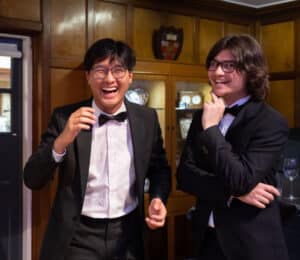 Mipham completed a summer internship with Man Group, a London Stock Exchange-listed active investment management business, in 2022, and then took up his present role with the firm in September 2023.
Mipham completed a summer internship with Man Group, a London Stock Exchange-listed active investment management business, in 2022, and then took up his present role with the firm in September 2023.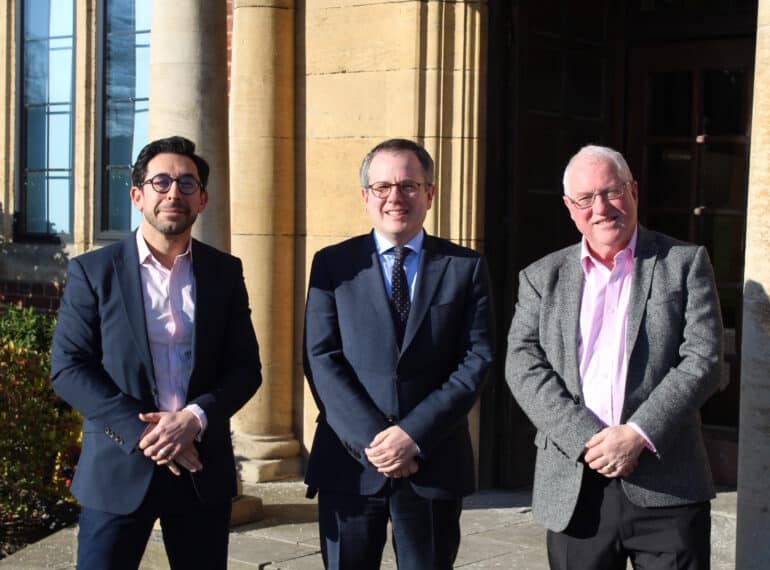
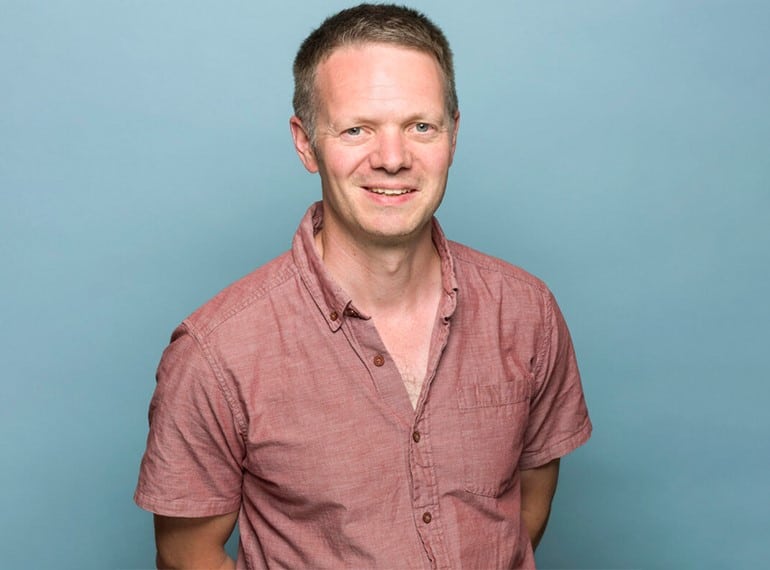
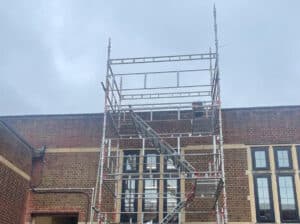 Work started this term on creating the 200-seat studio from two rooms towards the rear of Main Building. So far, a new roof has been installed and internal work done. The studio will come into use next term, with the tiered seating due to be fitted around the half-term break. The lighting and sound equipment has still to be purchased.
Work started this term on creating the 200-seat studio from two rooms towards the rear of Main Building. So far, a new roof has been installed and internal work done. The studio will come into use next term, with the tiered seating due to be fitted around the half-term break. The lighting and sound equipment has still to be purchased.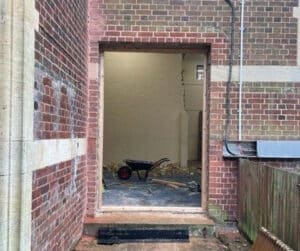 QE theatre trips this term included 40 boys in Years 9 and 10 going to see Red Pitch, an award-winning play at Soho House Theatre, which was built by Alex’s company, Charcoalblue.
QE theatre trips this term included 40 boys in Years 9 and 10 going to see Red Pitch, an award-winning play at Soho House Theatre, which was built by Alex’s company, Charcoalblue.